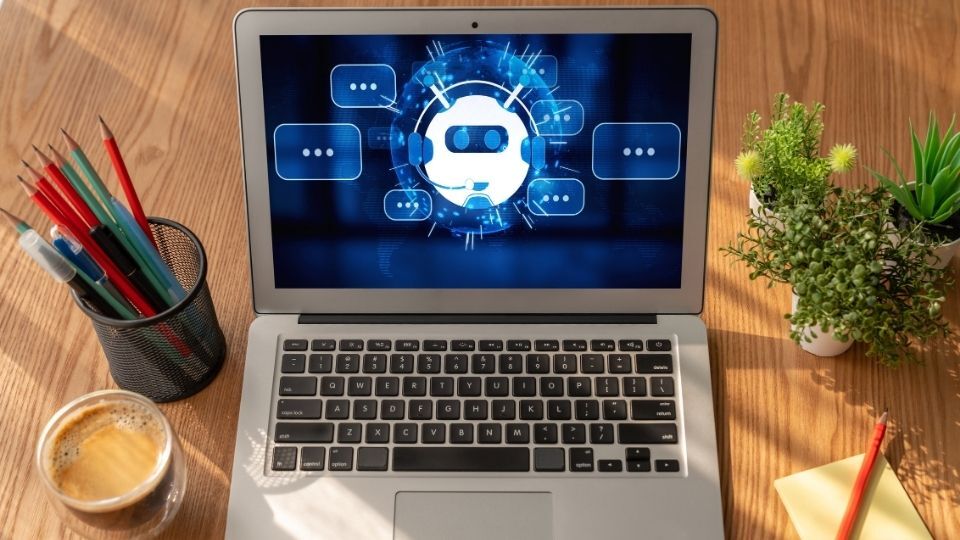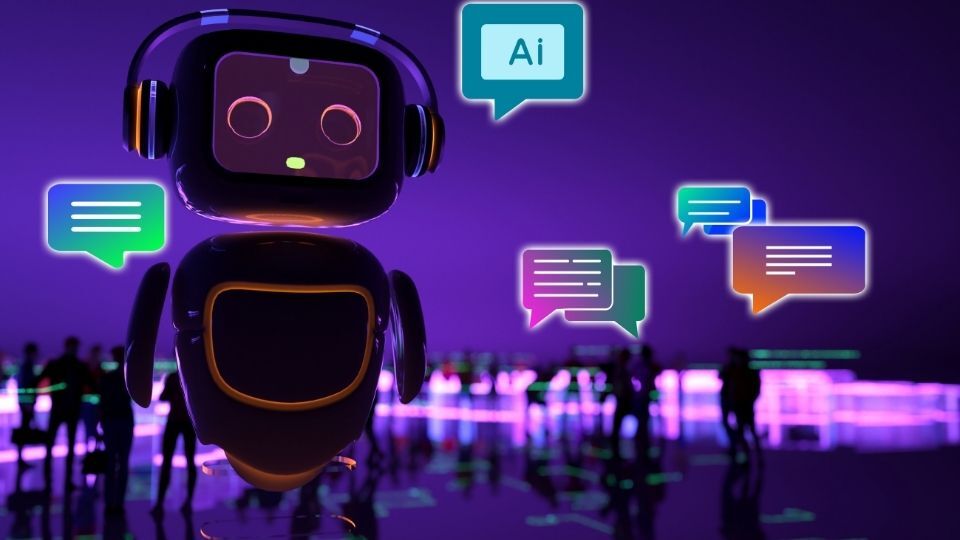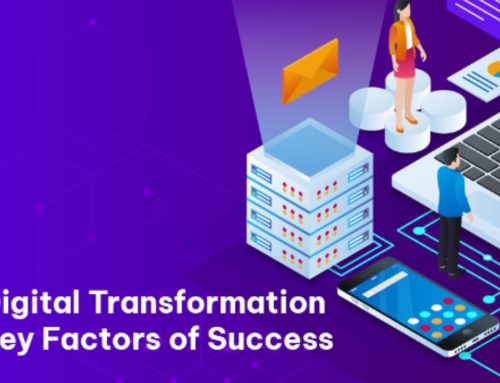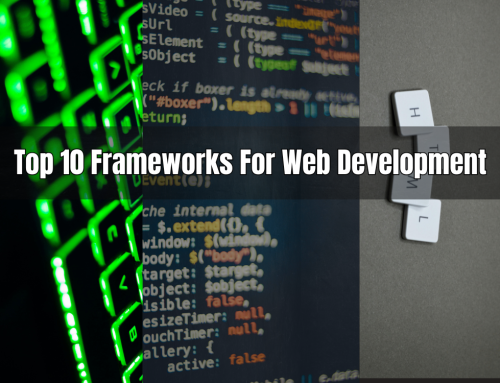The adoption of chatbot development services is rapidly redefining enterprise operations. Once seen as simple tools for customer engagement, chatbots have evolved into highly sophisticated digital assistants capable of handling complex workflows, streamlining processes, and creating a seamless bridge between employees, customers, and enterprise systems.
Today, enterprises face a pressing need for greater efficiency, automation, and agility. Manual workflows and siloed systems slow down productivity, increase operational costs, and create friction across departments. This is where chatbot development services emerge as a game-changer. By leveraging artificial intelligence (AI), natural language processing (NLP), and integration with enterprise platforms, chatbots are becoming central to enterprise digital strategies.
In this blog by Smart Digitants, we’ll explore how chatbot development services are revolutionising enterprise workflows, their role in digital transformation, and why businesses can no longer ignore their strategic value.
Understanding Chatbot Development Services in the Enterprise Context
At its core, chatbot development services refer to the end-to-end process of designing, building, deploying, and maintaining AI-driven conversational tools tailored to enterprise needs. Unlike off-the-shelf chatbots designed for small-scale use, enterprise-grade chatbot solutions are highly customisable, deeply integrated into internal systems, and capable of handling both customer-facing and employee-facing workflows.
Key Characteristics of Enterprise Chatbot Development Services
- Customisation at Scale
Enterprises demand solutions that reflect their unique workflows, branding, and compliance requirements. Professional chatbot development services allow organisations to move beyond generic chatbot templates by creating tailored experiences that meet specific departmental needs—whether it’s automating HR queries, guiding customers through a sales journey, or streamlining IT support. - Integration with Core Enterprise Systems
Modern chatbots aren’t standalone applications. They seamlessly integrate with Customer Relationship Management (CRM) platforms, Enterprise Resource Planning (ERP) systems, HR portals, and ticketing systems. This integration ensures that chatbots can fetch real-time data, update records, and trigger actions across different departments without human intervention. - AI and NLP Capabilities
Advanced chatbot development services harness AI and NLP to understand context, intent, and user behaviour. This allows enterprises to deliver human-like interactions, reducing user frustration while improving engagement. For workflows, this means queries are resolved faster, decisions are made with fewer errors, and the workforce can focus on higher-value tasks. - Scalability and Security
Enterprises operate at scale, often serving thousands of employees and millions of customers simultaneously. Chatbot solutions need to scale accordingly while adhering to stringent security and compliance standards. Development services ensure robust encryption, role-based access control, and GDPR compliance, all of which are critical in enterprise environments. - Continuous Optimisation and Support
Unlike static software tools, chatbots require ongoing optimisation. Development service providers offer performance monitoring, conversational analytics, and iterative improvements, ensuring that workflows remain efficient as business needs evolve.
Why Enterprises Are Investing Heavily in Chatbots
The growing investment in chatbot solutions is not simply a technology fad. Enterprises recognise the strategic advantage of automating repetitive tasks, enhancing user experience, and driving cost efficiency. According to market research, global spending on chatbot development is projected to grow exponentially over the next five years, reflecting a strong demand across industries such as finance, healthcare, retail, and logistics.
How Chatbot Development Services Streamline Enterprise Workflows
The value of chatbot development services lies not only in automating conversations but also in reshaping how enterprises execute daily tasks across departments. From HR and IT support to customer service and sales, chatbots are dismantling inefficiencies, enabling faster decision-making, and improving collaboration between teams.
1. Human Resources Automation
HR departments often spend significant time managing routine employee requests—queries about leave policies, payroll information, onboarding documentation, and benefits. With chatbot development services, enterprises can:
- Automate HR Queries: Employees get instant answers to common questions without overwhelming HR teams.
- Simplify Recruitment: Chatbots can pre-screen candidates, schedule interviews, and provide updates on hiring status.
- Enhance Onboarding: New employees receive step-by-step guidance on compliance training, access requests, and orientation schedules.
By automating repetitive HR tasks, chatbots free up HR professionals to focus on strategic initiatives such as employee engagement and talent development.
2. IT Support and Helpdesk Optimisation
Enterprise IT teams are under constant pressure to resolve support tickets quickly. Chatbots offer significant improvements here:
- Tier-1 Ticket Resolution: Chatbots handle password resets, software installation guides, and system troubleshooting, reducing ticket backlog.
- 24/7 IT Assistance: Employees working across different time zones can access real-time support without waiting for human intervention.
- Escalation Management: When a chatbot cannot resolve an issue, it intelligently routes the request to the appropriate IT specialist with context attached.
This not only accelerates response times but also reduces operational costs linked to IT support staffing.
3. Customer Service Transformation
Customer expectations for instant, personalised support have never been higher. Through chatbot development services, enterprises can deploy conversational AI that:
- Provides 24/7 multilingual support across digital channels.
- Handles order tracking, returns, and refunds without human involvement.
- Delivers personalised recommendations by analysing customer data.
- Collects feedback seamlessly, enabling businesses to improve products and services.
For enterprises handling thousands of customer interactions daily, this automation results in faster resolution times, higher satisfaction, and improved loyalty.
4. Sales and Marketing Automation
Sales teams leverage chatbots to nurture leads, while marketing teams use them to engage audiences at scale:
- Lead Qualification: Chatbots capture visitor details, ask qualifying questions, and hand off sales-ready leads to representatives.
- Product Discovery: Customers are guided through catalogues, pricing structures, and promotions in a conversational way.
- Campaign Engagement: Marketing campaigns powered by chatbots achieve higher interaction rates, particularly through instant messaging platforms.
By providing instant responses and personalised offers, enterprises can increase conversion rates and shorten sales cycles.
5. Workflow Integration and Cross-Departmental Collaboration
Perhaps the most transformative feature of chatbot development services is their ability to connect siloed workflows:
- Chatbots integrate with ERP systems to automate order processing and inventory updates.
- Finance departments use chatbots to generate expense reports and manage invoice approvals.
- Supply chain teams rely on bots to track shipments, flag delays, and optimise logistics.
This integration means workflows that once required manual intervention across multiple systems can now be executed seamlessly through conversational commands.
The Role of AI and Conversational Intelligence in Enterprise Chatbots
The real power of chatbot development services comes from their ability to move beyond scripted responses into intelligent, adaptive conversations. This leap is made possible by advancements in artificial intelligence (AI), natural language processing (NLP), and machine learning (ML). For businesses looking to understand how these AI capabilities can be integrated directly into websites and digital platforms, our guide on: AI Web Integration: Tools, APIs, and Real-World Use Cases provides detailed tools, APIs, and practical implementation examples.
Natural Language Processing (NLP)
At the heart of enterprise chatbots lies NLP, which allows chatbots to interpret and understand human language with precision. Unlike traditional keyword-based bots, modern AI chatbots can:
- Recognise Intent: Understand what the user is asking, even if phrased in different ways.
- Analyse Sentiment: Gauge the emotional tone of a message to adapt the response accordingly.
- Support Multilingual Conversations: Deliver accurate interactions across diverse languages and dialects.
By enabling human-like comprehension, NLP ensures chatbots can handle complex workflows such as policy queries, technical troubleshooting, or compliance-related questions.
Machine Learning for Continuous Improvement
One of the most critical advantages of enterprise-focused chatbot development services is the application of ML models. These models allow chatbots to:
- Learn from past interactions and improve accuracy over time.
- Identify patterns in queries and proactively suggest solutions.
- Reduce error rates in workflows by refining responses based on user behaviour.
This continuous learning transforms chatbots into dynamic enterprise assets that evolve with organisational needs.
AI-Powered Decision Support
Beyond answering questions, AI chatbots are becoming active participants in enterprise decision-making. For instance:
- In Finance: Chatbots analyse spending patterns to flag unusual expenses.
- In Healthcare: They assist clinicians by suggesting diagnostic pathways.
- In Supply Chains: Bots predict delays based on historical data and recommend alternative logistics routes.
This goes far beyond efficiency—it positions chatbots as intelligent partners in business strategy.
Conversational Intelligence in Action
Conversational intelligence combines AI, NLP, and contextual awareness to create more natural, human-like interactions. For enterprises, this means:
- Personalised Experiences: Chatbots adapt responses based on user history and role.
- Contextual Continuity: Conversations flow naturally even if a user switches between devices or departments.
- Data-Driven Insights: Every interaction generates valuable data that can be analysed to optimise workflows and customer engagement strategies.
Through conversational intelligence, chatbot development services are no longer just support tools—they are becoming central to enterprise digital ecosystems.
Key Benefits of Chatbot Development Services for Enterprises
Enterprises are not investing in chatbot technology just for novelty. The adoption of chatbot development services is driven by measurable outcomes that align with business goals such as efficiency, scalability, cost optimisation, and competitive differentiation.
1. Enhanced Operational Efficiency
Chatbots automate repetitive and time-consuming tasks, from answering FAQs to managing workflow approvals. This reduces the burden on employees, allowing them to focus on higher-value activities. In HR, IT, customer service, and supply chain management, chatbots are proving to be indispensable digital assistants.
2. Significant Cost Reduction
By replacing manual effort with automated responses, enterprises save on staffing and operational expenses. For instance:
- A chatbot can handle thousands of Tier-1 support queries simultaneously at a fraction of the cost of a human team.
- Enterprises reduce overtime and outsourcing costs for customer service and IT functions.
3. 24/7 Availability Across Time Zones
Global enterprises operate in multiple markets where customer expectations never sleep. Chatbot development services enable round-the-clock availability without the need for night shifts or expanded staffing models, ensuring consistent support across geographies.
4. Improved Customer Experience
AI-powered chatbots provide fast, personalised, and accurate responses. Features like contextual memory, multilingual support, and personalised recommendations improve customer satisfaction and loyalty. A well-designed chatbot becomes an extension of the brand voice, delivering seamless interactions.
5. Scalability on Demand
Enterprises face fluctuating demands—peak shopping seasons, financial year-end processes, or large-scale recruitment drives. Chatbots scale effortlessly to handle spikes in queries without compromising response times or quality.
6. Strengthened Compliance and Security
Chatbots designed through professional development services are built with enterprise-grade security protocols. They ensure compliance with data protection regulations such as GDPR, HIPAA, or PCI-DSS, reducing the risk of breaches or non-compliance penalties.
7. Actionable Business Insights
Every chatbot interaction generates structured data that can be analysed. Enterprises leverage this data to:
- Identify common issues that slow down workflows.
- Detect customer pain points.
- Refine internal processes for higher efficiency.
In this way, chatbot development services not only optimise workflows but also provide intelligence for continuous business improvement.
Industry-Specific Applications of Chatbot Development Services

The adaptability of chatbot development services makes them valuable across industries with varying workflows, compliance requirements, and customer expectations. By tailoring solutions to sector-specific needs, enterprises unlock operational efficiency and competitive advantages.
1. Finance and Banking
Banks and financial institutions have embraced chatbots to improve customer engagement while ensuring compliance. Applications include:
- Account Management: Customers check balances, view statements, or transfer funds via conversational interfaces.
- Fraud Detection Alerts: Chatbots notify users of suspicious activities in real time.
- Loan Processing: Bots pre-qualify applicants and guide them through application stages.
- Regulatory Compliance: Chatbots provide instant access to compliance guidelines for employees and customers.
Result: Improved customer trust and reduced overhead in call centres.
2. Healthcare
In healthcare, where accuracy and timeliness are critical, chatbot development services streamline patient and provider workflows.
- Patient Triage: Bots assess symptoms and suggest next steps, such as booking an appointment or seeking emergency care.
- Appointment Scheduling: Patients can book, reschedule, or cancel appointments instantly.
- Medication Reminders: Automated reminders ensure adherence to prescriptions.
- Provider Support: Doctors and nurses access patient history quickly through chatbot interfaces.
Result: Reduced administrative workload and improved patient experience.
3. Retail and E-commerce
Retailers deploy chatbots to meet customer expectations for speed and convenience.
- Product Discovery: Chatbots guide shoppers through catalogues, offering personalised recommendations.
- Order Tracking and Returns: Customers receive instant updates on delivery status and return processes.
- Promotional Campaigns: Chatbots push targeted offers to increase sales conversions.
- Customer Feedback Collection: Bots gather insights post-purchase for continuous service improvement.
Result: Higher sales conversions and increased customer loyalty.
4. Logistics and Supply Chain
Global supply chains require constant coordination. Chatbot development services help logistics firms achieve real-time efficiency.
- Shipment Tracking: Customers and employees get instant updates on delivery timelines.
- Inventory Management: Bots alert managers about stock shortages or overstocks.
- Supplier Coordination: Automated updates ensure better communication with vendors.
- Crisis Management: During disruptions, chatbots provide quick contingency options.
Result: Streamlined logistics operations and reduced supply chain disruptions.
5. Education and E-Learning
Educational institutions are using chatbots to support both learners and staff.
- Student Enquiries: Bots answer queries on admissions, courses, and deadlines.
- Learning Assistance: Chatbots provide study resources, quizzes, and reminders.
- Administrative Support: Faculty use bots for scheduling and grading assistance.
Result: Enhanced student engagement and reduced administrative complexity.
Implementation Challenges and How to Overcome Them
While chatbot development services offer significant benefits, enterprises often encounter obstacles during planning, deployment, and adoption. Recognising these challenges and applying best practices ensures a smoother transition to chatbot-powered workflows.
1. Integration with Legacy Systems
Challenge: Many enterprises operate on outdated systems that were never designed to integrate with modern AI chatbots. This can create data silos and limit automation potential.
Solution: Professional development services implement middleware solutions, APIs, and modular integration strategies that connect chatbots with CRM, ERP, HRMS, and custom-built enterprise systems. A phased integration approach reduces disruption.
2. User Adoption and Change Resistance
Challenge: Employees and customers may initially resist chatbot adoption, fearing complexity, job displacement, or poor usability.
Solution: Enterprises should introduce chatbots gradually, starting with low-risk workflows. Training sessions, awareness campaigns, and feedback loops build confidence. Ensuring the chatbot provides real value early on increases adoption rates.
3. Limited Conversational Accuracy
Challenge: Without proper training, chatbots may misinterpret queries, leading to user frustration. Poorly designed bots can damage customer trust.
Solution: Leveraging chatbot development services with strong NLP and machine learning capabilities ensures high conversational accuracy. Continuous optimisation based on analytics and user feedback enhances performance over time.
4. Data Privacy and Compliance
Challenge: Enterprises in regulated industries (e.g., healthcare, finance) face stringent compliance requirements. Mishandling sensitive data could result in legal and reputational risks.
Solution: Professional chatbot development services incorporate GDPR, HIPAA, and PCI-DSS compliance from the ground up. This includes encryption, access control, audit trails, and anonymisation of sensitive data.
5. Balancing Automation with Human Interaction
Challenge: Over-reliance on chatbots without human escalation can frustrate users when complex queries arise.
Solution: A hybrid model is recommended—chatbots handle repetitive tasks, while unresolved cases are routed to human agents. Intelligent escalation ensures users never feel trapped in a conversation loop.
6. Measuring ROI and Success
Challenge: Enterprises often struggle to quantify the ROI of chatbot initiatives, especially in the early stages.
Solution: Development services define success metrics upfront, such as resolution rates, time saved per query, cost reductions, and customer satisfaction scores. Tracking these KPIs provides clear visibility of ROI.
By addressing these challenges strategically, enterprises maximise the value of their chatbot development services investment, ensuring both immediate gains and long-term sustainability.
Future Trends in Enterprise Chatbot Development Services
The landscape of chatbot development services is evolving rapidly, driven by advancements in AI, automation, and enterprise digital transformation. Enterprises that stay ahead of these trends will gain a significant competitive advantage.
1. Voice-Enabled Chatbots
Text-based chat remains dominant, but voice interfaces are growing in importance. Enterprises are adopting voice-enabled chatbots for:
- Customer service hotlines powered by conversational AI instead of traditional IVR systems.
- Hands-free enterprise workflows, such as field engineers querying databases while on-site.
- Accessibility improvements, enabling more inclusive user experiences for diverse audiences.
2. Hyper-Automation and RPA Integration
Chatbots are increasingly being paired with Robotic Process Automation (RPA) tools to achieve hyper-automation. This trend allows bots not only to converse but also to trigger complex multi-step processes, such as:
- Approving expense claims.
- Onboarding new vendors.
- Processing compliance documentation.
The result is end-to-end workflow automation without human intervention.
3. Predictive and Proactive AI
Future chatbots will not only respond to user input but also anticipate needs based on data and behavioural analysis. Examples include:
- Proactively reminding employees about compliance deadlines.
- Suggesting alternative suppliers to procurement teams before shortages occur.
- Recommending cross-sell or upsell opportunities in real time.
This shift from reactive to proactive automation enhances productivity and creates new business opportunities.
4. Industry-Specific Chatbot Models
We will see the rise of pre-trained chatbot frameworks tailored for industries such as healthcare, finance, and logistics. These models, developed through specialised chatbot development services, will accelerate deployment while maintaining regulatory compliance and industry relevance.
5. Multimodal Interfaces
The future of enterprise chatbots extends beyond text and voice. Multimodal bots will combine text, voice, images, and video to deliver richer experiences. For example:
- A logistics chatbot could share shipment images along with delivery updates.
- A healthcare bot might provide patients with instructional videos during recovery.
6. Deeper Analytics and Workflow Intelligence
Enterprises are increasingly leveraging chatbot data for strategic insights. Future bots will go beyond interaction analytics, providing recommendations to redesign workflows, improve training, and optimise service delivery.
7. Integration with Metaverse and Virtual Workspaces
As enterprises explore immersive digital environments, chatbots will serve as virtual assistants in metaverse workspaces, guiding employees, supporting collaboration, and managing workflows in 3D digital offices.
These innovations indicate that chatbot development services are set to become even more integral to enterprise digital ecosystems—expanding their role from workflow automation tools to intelligent business partners.
Frequently Asked Questions
1. What are chatbot development services?
Chatbot development services involve the design, creation, deployment, and optimisation of AI-powered chatbots tailored to enterprise workflows. These services ensure that chatbots integrate seamlessly with systems such as CRMs, ERPs, HR platforms, and IT helpdesks. Unlike generic chatbot tools, professional development services deliver customised, scalable, and secure solutions aligned with enterprise requirements.
2. Why do enterprises need chatbot development services?
Enterprises rely on chatbot development services to automate routine tasks, provide 24/7 support, and reduce operational costs. Beyond automation, these services help businesses enhance employee productivity, improve customer satisfaction, and gather valuable insights from conversations. For organisations operating at scale, chatbot development services ensure smooth, secure, and compliant digital workflows.
3. How do chatbot development services improve enterprise workflows?
Chatbot development services streamline workflows by integrating chatbots directly into enterprise systems. This enables tasks such as IT ticket resolution, HR query automation, customer support, and supply chain management to be handled quickly and consistently. The result is reduced manual workload, fewer delays, and greater accuracy across departments.
4. What technologies power enterprise chatbot development services?
Modern chatbot development services leverage artificial intelligence (AI), natural language processing (NLP), and machine learning (ML). These technologies allow chatbots to understand user intent, learn from interactions, and provide contextually accurate responses. Many solutions also integrate robotic process automation (RPA) to deliver hyper-automation across enterprise workflows.
5. Are chatbot development services secure and compliant?
Yes. Enterprise-grade chatbot development services prioritise security and compliance by implementing features such as data encryption, access control, GDPR adherence, HIPAA compliance, and secure cloud hosting. These safeguards ensure that sensitive data remains protected while meeting regulatory standards.
6. What advanced features do chatbot development services offer?
Modern chatbot development services go far beyond basic question-and-answer capabilities. Advanced chatbot features include:
- Contextual memory, allowing chatbots to remember past interactions and provide continuity across conversations.
- Multilingual support, enabling global enterprises to serve diverse audiences.
- Integration with enterprise systems such as CRMs, ERPs, and HR platforms for real-time data access.
- Predictive analytics, where chatbots proactively suggest actions or flag potential issues before they occur.
7. How do chatbot development services contribute to cost savings?
By automating high-volume, low-value interactions, chatbot development services reduce the need for large customer service or IT support teams. Enterprises save on staffing costs while ensuring 24/7 availability. Additionally, reduced error rates and faster resolution times translate into operational savings across the organisation.
8. What are the key challenges in adopting chatbot development services?
Enterprises often face challenges such as system integration with legacy platforms, user adoption resistance, conversational accuracy, and compliance risks. However, these can be overcome with phased rollouts, employee training, and selecting chatbot development services that include strong NLP, secure architecture, and ongoing optimisation support.
9. How do chatbot development services enhance customer experiences?
Chatbot development services enable enterprises to deliver instant, personalised, and consistent customer support across multiple channels. Whether through websites, mobile apps, or messaging platforms, chatbots reduce wait times, provide relevant solutions, and adapt responses to individual customer needs, improving satisfaction and loyalty.
10. What does the future hold for chatbot development services?
The future of chatbot development services includes voice-enabled bots, predictive AI, multimodal interactions (combining text, voice, and visuals), and integration with emerging technologies such as the metaverse. These innovations will expand chatbot roles from support tools to strategic business partners that actively shape enterprise decision-making.
Ready to Transform Your Enterprise Workflows?
The future of enterprise efficiency lies in intelligent automation. By investing in professional chatbot development services, your organisation can unlock streamlined workflows, reduce operational costs, and deliver seamless experiences for both employees and customers.
At Smart Digitants, we specialise in designing, building, and scaling enterprise-grade chatbots tailored to your unique business needs. Whether you want to optimise customer service, automate HR, enhance IT support, or integrate AI into your core systems, our team has the expertise to deliver measurable results.
Check our recent blog on Automation Chatbot Integration
Our Content Writing Team at Smart Digitants is a group of dedicated professionals, passionate about creating high-quality, engaging content.
- Understanding Chatbot Development Services in the Enterprise Context
- How Chatbot Development Services Streamline Enterprise Workflows
- The Role of AI and Conversational Intelligence in Enterprise Chatbots
- Key Benefits of Chatbot Development Services for Enterprises
- Industry-Specific Applications of Chatbot Development Services
- Implementation Challenges and How to Overcome Them
- Future Trends in Enterprise Chatbot Development Services
- Frequently Asked Questions
- 1. What are chatbot development services?
- 2. Why do enterprises need chatbot development services?
- 3. How do chatbot development services improve enterprise workflows?
- 4. What technologies power enterprise chatbot development services?
- 5. Are chatbot development services secure and compliant?
- 6. What advanced features do chatbot development services offer?
- 7. How do chatbot development services contribute to cost savings?
- 8. What are the key challenges in adopting chatbot development services?
- 9. How do chatbot development services enhance customer experiences?
- 10. What does the future hold for chatbot development services?
- Ready to Transform Your Enterprise Workflows?










